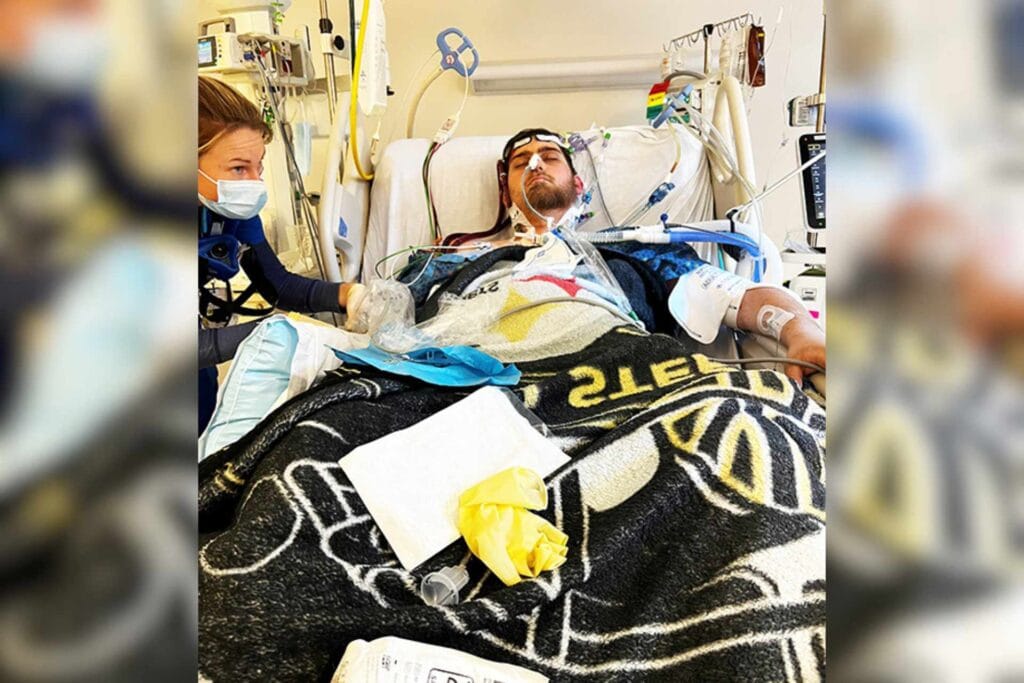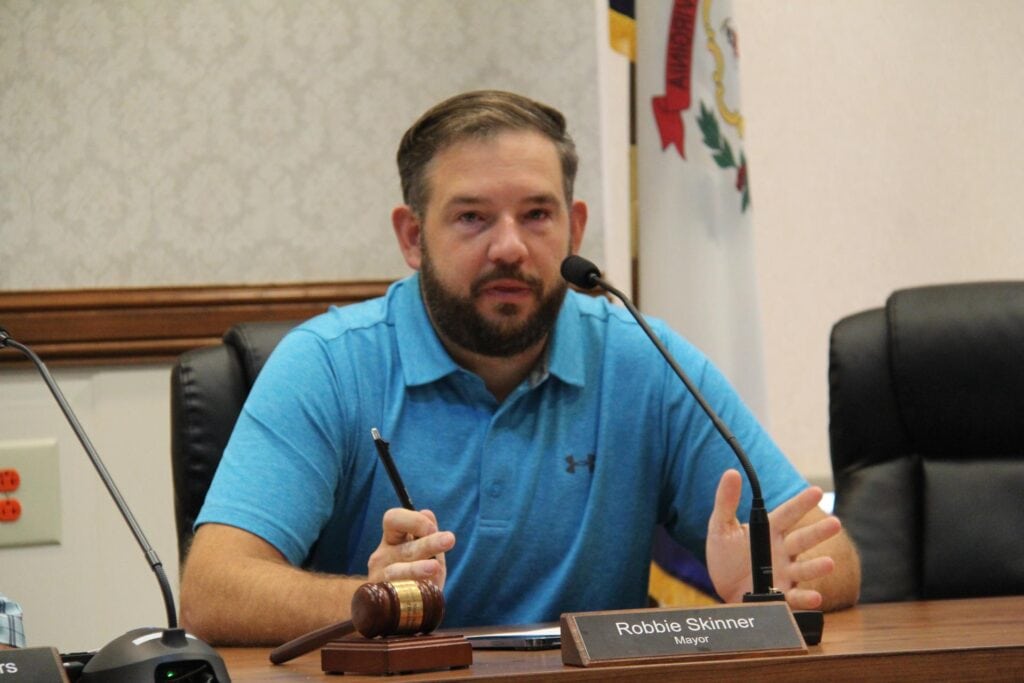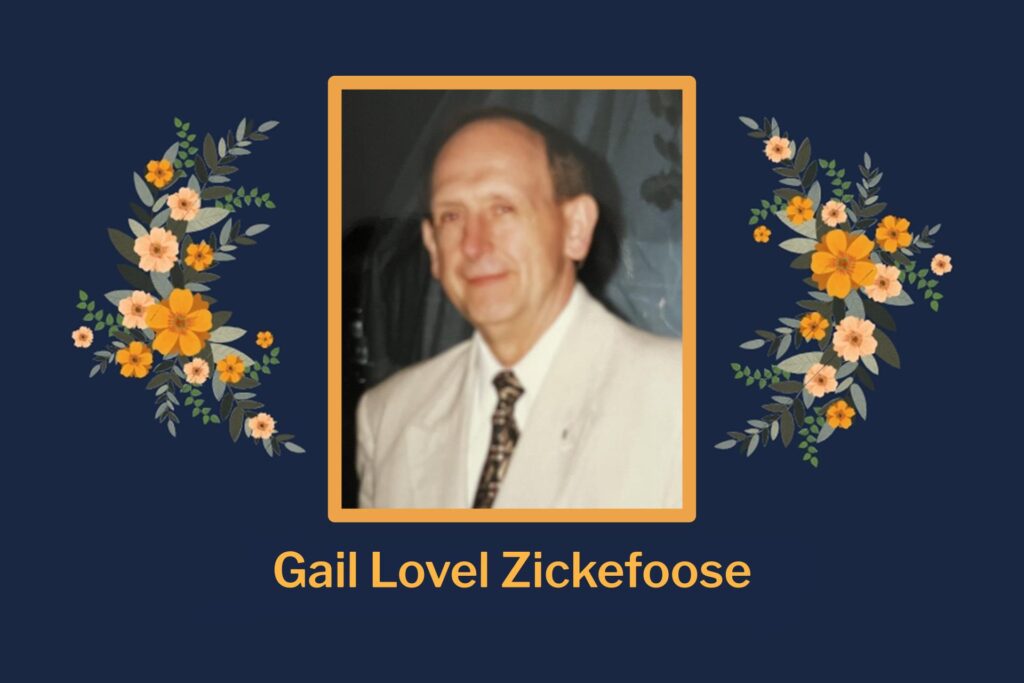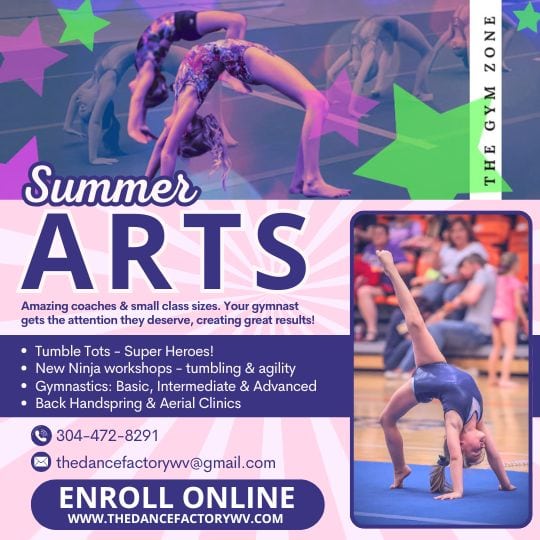MORGANTOWN, W.Va. – Mason Fox was used to battling on the lacrosse field for Davis and Elkins College. But his greatest battle came in October 2021, when he was diagnosed with COVID-19 and airlifted to the WVU Heart and Vascular Institute.
“Mason’s story is remarkable because it shows how serious COVID can be,” J.W. Awori Hayanga, M.D., M.P.H., founding director of the ECMO Program at the WVU Heart and Vascular Institute, said. “He would have died if he had not received ECMO support. When Mason contracted the disease, vaccines were neither widely accessible nor widely accepted. But to have a young, healthy college athlete in his prime almost die from the virus shows how powerful COVID is and underscores how important vaccinations are.”
After severe symptoms and a diagnosis of COVID-19, Fox was admitted to WVU Medicine St. Joseph’s Hospital in Buckhannon. There, physicians quickly realized he needed extended treatment emergently, and called WVU Medicine J.W. Ruby Memorial Hospital to have him flown to the WVU Heart and Vascular Institute’s cardiovascular intensive care unit (CVICU) in Morgantown.
Gerald Brumley, an ECMO specialist at the WVU Heart and Vascular Institute, was one of many team members that cared for Fox. ECMO (Extra-Corporeal Membrane Oxygenation) is a life-support machine used in patients with life-threatening heart and/or breathing problems. When the heart does not pump enough blood or the lungs do not provide enough oxygen, ECMO can be used to assist the heart and/or lungs while giving the body a chance to rest. Brumley said Fox was intubated when he arrived in Morgantown and was put on ECMO after coming out of intubation.
“Mason had a severe case of COVID,” Brumley said. “At the time, we weren’t able to allow visitors, so the staff became very involved in not only the physical care of Mason but the mental care as well.”
Fox was on ECMO for weeks. During that time, Brumley and the rest of the staff became emotionally invested in his survival. Brumley said he started to see a turning point in Fox’s health about a week into his course on ECMO.
“At first, it was overwhelming for him,” Brumley said. “He couldn’t breathe, he had a tracheostomy, and he was hooked up to multiple machines. It was a lot, and it would have been easy for him, and other patients, to give up. But Mason was able to develop a positive outlook.”
Fox said he felt he started to get better when he saw how hard the staff was working to care for him. He said he had a different outlook on his situation because of the staff at the WVU Heart and Vascular Institute.
“Jerri motivated me to get moving,” Fox said. “If he and the rest of the team were putting in the work, I needed to on my end. I saw the light. I knew I had to get better.”
Dr. Hayanga said when Fox first came into the CVICU, he had a minimal chance of survival. Fox was discharged from the hospital after just over a month.
“He was going to die,” Hayanga said. “ECMO saved his life.”
The adult ECMO program at the WVU Heart and Vascular Institute is the only one of its kind in the state was recognized nationally with an ELSO Gold Center of Excellence Life Support Award from the Extracorporeal Life Support Organization (ELSO), which recognizes those centers that demonstrate an exceptional commitment to evidence-based processes and quality measures, staff training and continuing education, patient satisfaction, and ongoing clinical care.
The ECMO staff at the WVU Heart and Vascular Institute pride themselves on continuity of care of patients, having the same staff members with them through their stay in the hospital. With that care, Hayanga said the program initiated a survivorship clinic to provide continuity of care post discharge, particularly for patients with long COVID.
“We have the model of following patients post-discharge who were on ECMO,” Hayanga said. “It can be traumatic for patients, and we provide them with support groups, psychological care, and physical therapy. We have formed a community of ECMO COVID survivors who can talk about their experience and learn how to handle the aftereffects of their experience.”
Recently, the ECMO team received a Best Poster Award at the 59th Annual Meeting of the Society of Thoracic Surgeons in San Diego, where they showcased their post-discharge model of care.
To learn more about the ECMO program at the WVU Heart and Vascular Institute, visit WVUMedicine.org/Heart.












